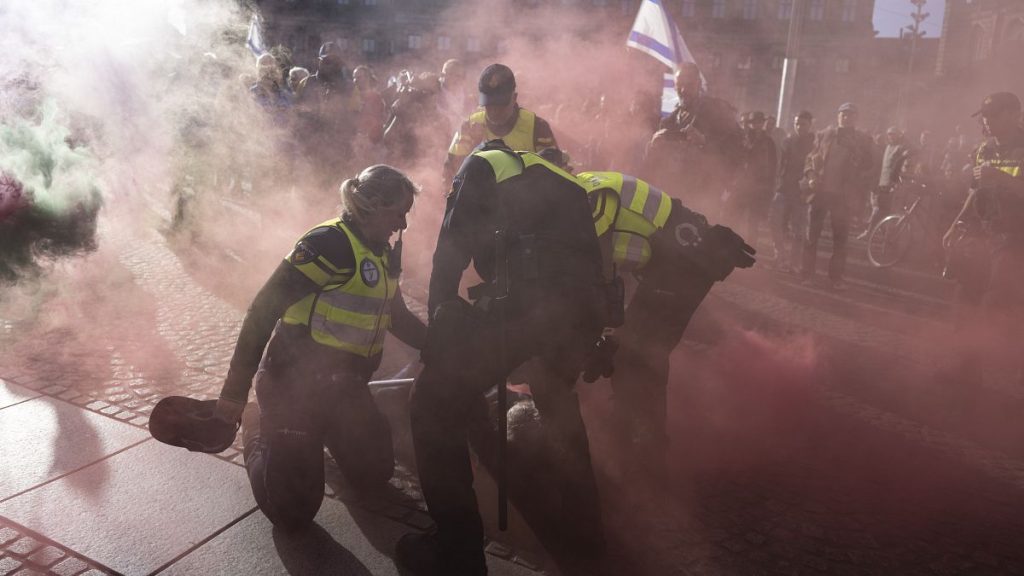Multiple cities across Europe held events to commemorate the over 1200 Israelis who were killed last year on October 7 and those who were taken hostage by Hamas. In Amsterdam, police targeted a group of protesters who were marching in support of Palestinians amid Israel’s year-long military campaign on Gaza. The protesters were met with violence by the police as they attempted to approach Dam Square, where a pro-Israeli gathering was taking place. The gathering in the Dam Square was in memory of the 7 October Hamas attacks that led to Israel’s massive offensive on the Gaza Strip.
In Berlin, a memorial was held at the Chabad synagogue where survivors of the attacks mourned their lost loved ones and called for efforts to release the remaining hostages. Italian Prime Minister Giorgia Meloni attended a ceremony at Rome’s main synagogue where she voiced support for Israel’s right to defend itself while also acknowledging the devastation caused by Israeli forces in Gaza. She highlighted the double victimization of Palestinians in Gaza, first by Hamas’ tactics and then by Israeli military operations. In France, activists from the “Tous 7 Octobre” association hung posters of the faces of Hamas hostages on the streets of Paris in an effort to humanize them and raise awareness about their captivity. Ninety-four of the 251 hostages are still being held in Gaza.
The events in Europe served as a reminder of the tragic loss of life and the ongoing situation in the region resulting from the October 7 attacks. The protests in Amsterdam and the memorials in various cities underscored the complex nature of the Israeli-Palestinian conflict and the continued suffering of those affected by the violence. Despite the different perspectives on the conflict, the events aimed to honor the victims and push for a peaceful resolution to the ongoing tensions.
The use of violence by police in Amsterdam against protesters highlights the intensity of emotions surrounding the Israeli-Palestinian conflict and the challenges of expressing dissent in a polarized environment. The actions of the police also raise questions about freedom of speech and the right to protest in the face of political discord. The confrontations in Amsterdam reflect a broader global debate over the appropriate response to conflicts in the Middle East and the role of international actors in promoting peace and justice.
The involvement of political leaders like Italian Prime Minister Giorgia Meloni in the events shows the significance of the Israeli-Palestinian conflict on the global stage and the varying perspectives on how to address the ongoing humanitarian crisis in Gaza. Meloni’s support for Israel’s right to defend itself while also acknowledging the impact of military operations on Palestinians highlights the complexities of the conflict and the need for nuanced approaches to resolving it. The commemorative events in Europe served as a platform for dialogue and reflection on the human cost of the conflict and the importance of finding peaceful solutions.
Overall, the events in Europe commemorating the October 7 attacks in Israel and the ongoing Hamas hostages in Gaza shed light on the ongoing repercussions of the Israeli-Palestinian conflict and the need for continued efforts to address the root causes of the violence. The involvement of activists, political leaders, and community members in remembering the victims and calling for peace reflects a collective desire for a more just and equitable future in the region. The protests and memorials serve as a reminder of the complexity and urgency of the situation and the importance of international solidarity in supporting efforts to build a more peaceful and inclusive society in the Middle East.


